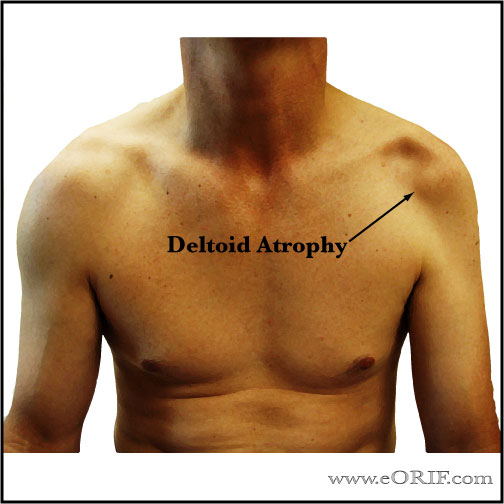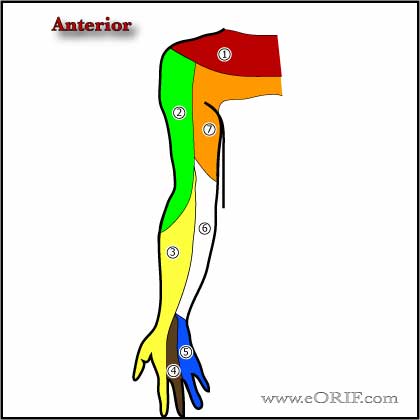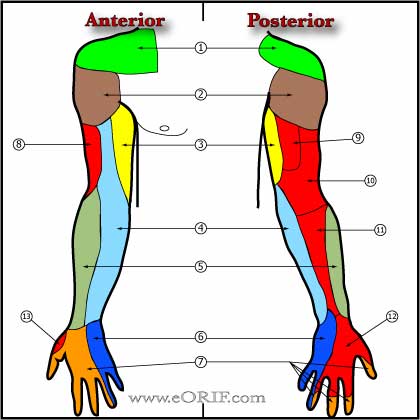|




|
synonyms:
Axillary Nerve Palsy ICD-10
A- initial encounter
D- subsequent encounter
S- sequela
Axillary Nerve Palsy ICD-9
- 955.0 injury to peripheral nerve of shoulder girdle and upper limb; Axillary nerve
Axillary Nerve Palsy Etiology / Epidemiology / Natural History
- Etiology: Iatrogenic from open or arthroscopic shoulder surgery; injury during anterior shoulder dislocation or proximal humerus fracture.
Axillary Nerve Palsy Anatomy
- Terminal branch of posterior cord derived from ventral rami 5&6
- Runs anterior to subscapularis
- Enters quadrilateral space with posterior humeral circumflex artery
- In contact with inferior joint capsule.
- Branches into anterior trunk{ant 2/3 deltoid} posterior trunk{post 1/3 deltoid,teres minor}
- Anterior trunk lies 4-7cm inferior to anterolateral acromion.
- Motor innervation: deltoid, teres minor
- Sensory innervation: lateral aspect of shoulder in a chevron distribution.
- Arthroscopic visualization of the axillary nerve (Paribelli G, Arthroscopy 2005:21:1016).
- See also Shoulder anatomy.
Axillary Nerve Palsy Clinical Evaluation
- Evaluate and grade anterior, middle and posterior deltoid function. (0-5/-)
- Document axillary nerve sensation in chevron distribution on shoulder.
Axillary Nerve Palsy Xray / Diagnositc Tests
- Shoulder xrays indicated to rule out concomittant injury.
- EMG indicated if no recovery is noted after 2 months of observation.
- Consider MRI-arthrogram for patients who have failed to improve with observation to rule out associated RTC tear etc.
Axillary Nerve Palsy Classification / Treatment
- Initial treatment = observation
- Follow-up at 6-8 weeks. If no recovery is noted on exam, EMG is indicated. EMG must include entire brachial plexus ie suprascapular nerve.
- It EMG done at two months shows signs of persistent denervation grafting of the axillary nerve should be consider and is best performed within 3-4 months from injury. (Bonnard C, JBJS 1999;81B:212).
- Vitamin B supplementation may improve recovery from nerve injury.
Axillary Nerve Palsy Associated Injuries / Differential Diagnosis
Axillary Nerve Palsy Complications
Axillary Nerve Palsy Follow-up Care
Axillary Nerve Palsy Review References
|




